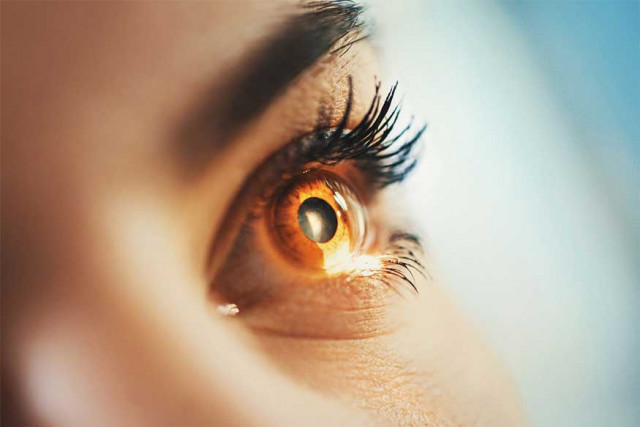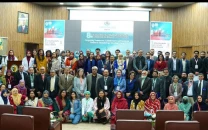Outbreak of red eye infection hits metropolis
Hospitals see dozens of conjunctivitis cases daily; experts warn against self-medication

A surge in cases of conjunctivitis, commonly known as "pink eye," has been reported across Karachi, with dozens of patients presenting with symptoms of red, painful, and swollen eyes at both public and private hospitals daily. Medical experts attribute the rapid spread of the outbreak to high humidity, poor sanitation, and the highly contagious nature of the Adenovirus.
Dr. Israr Ahmed Bhutto, Head of the Ophthalmology Department at Jinnah Postgraduate Medical Center, confirmed the rise in cases, noting that infections have increased due to the recent rains and humidity. He explained that the infection spreads easily in crowded places due to close contact and compromised hygiene. "Many people rub their infected eye and then shake hands with others, which is a major way the virus is transmitted," Dr. Bhutto said. "Sometimes, one eye gets infected first, and due to a lack of proper hygiene, the other eye also becomes infected."
He mentioned that before the rains, Jinnah Hospital saw almost no such cases, but now they are treating 15 to 20 patients daily. The severity of symptoms varies from mild to moderate and severe. The infection, primarily caused by Adenovirus, often begins with a sensation of something sharp in the eye, followed by the swelling of tiny blood vessels (capillaries), which turn the white part of the eye red or pink. Symptoms include itching, pain, watering of the eye, and sensitivity to light.
For mild cases, a cold compress is often sufficient. However, for moderate to severe infections, artificial tear drops are recommended. Dr. Bhutto emphasized that these drops mimic natural tears and have no side effects. In severe cases, the cornea can be affected, leading to blurred vision, severe pain, and light sensitivity. While the infection typically clears up in 15 to 20 days, blurred vision and light sensitivity may persist for one to two months.
Dr. Bhutto warned against self-medication, especially the use of steroid drops like Betnesol, which may provide temporary relief but can cause long-term damage. He also cautioned against using rose water, as its purity is often unknown. He advised using safe artificial tears, wearing sunglasses to manage light sensitivity, and refraining from rubbing the eyes. He also stressed the importance of washing hands after touching the affected eye and using a separate towel and pillow to prevent spreading the infection to others.
Dr. Khalida, an ophthalmologist at Civil Hospital Karachi, reported seeing 10 to 12 patients with "pink eye" daily from various areas, including Quaidabad, Kemari, Baldia Town, and Liaquatabad. Doctors at private clinics also confirmed the increasing number of "pink eye" cases, reinforcing the widespread nature of the outbreak across the city.




















COMMENTS
Comments are moderated and generally will be posted if they are on-topic and not abusive.
For more information, please see our Comments FAQ